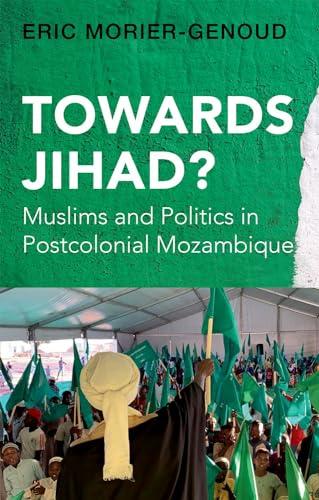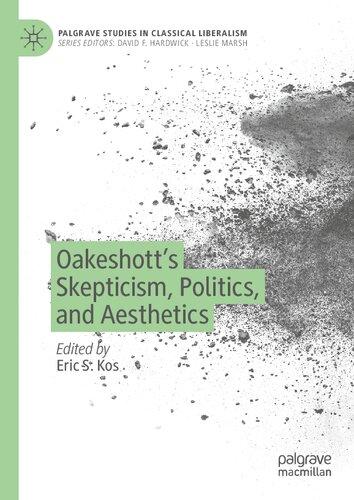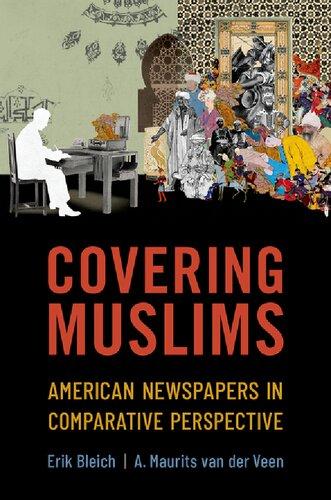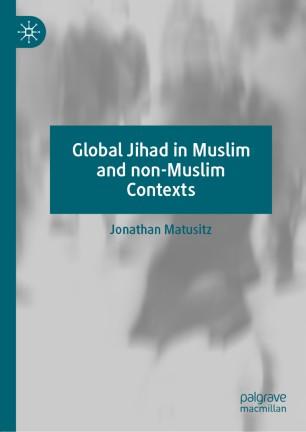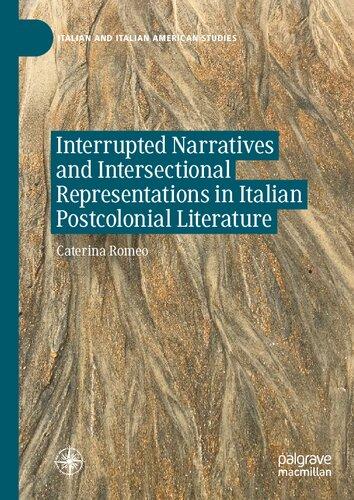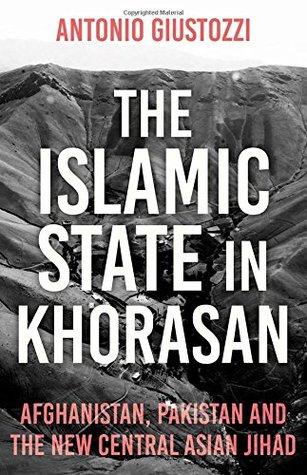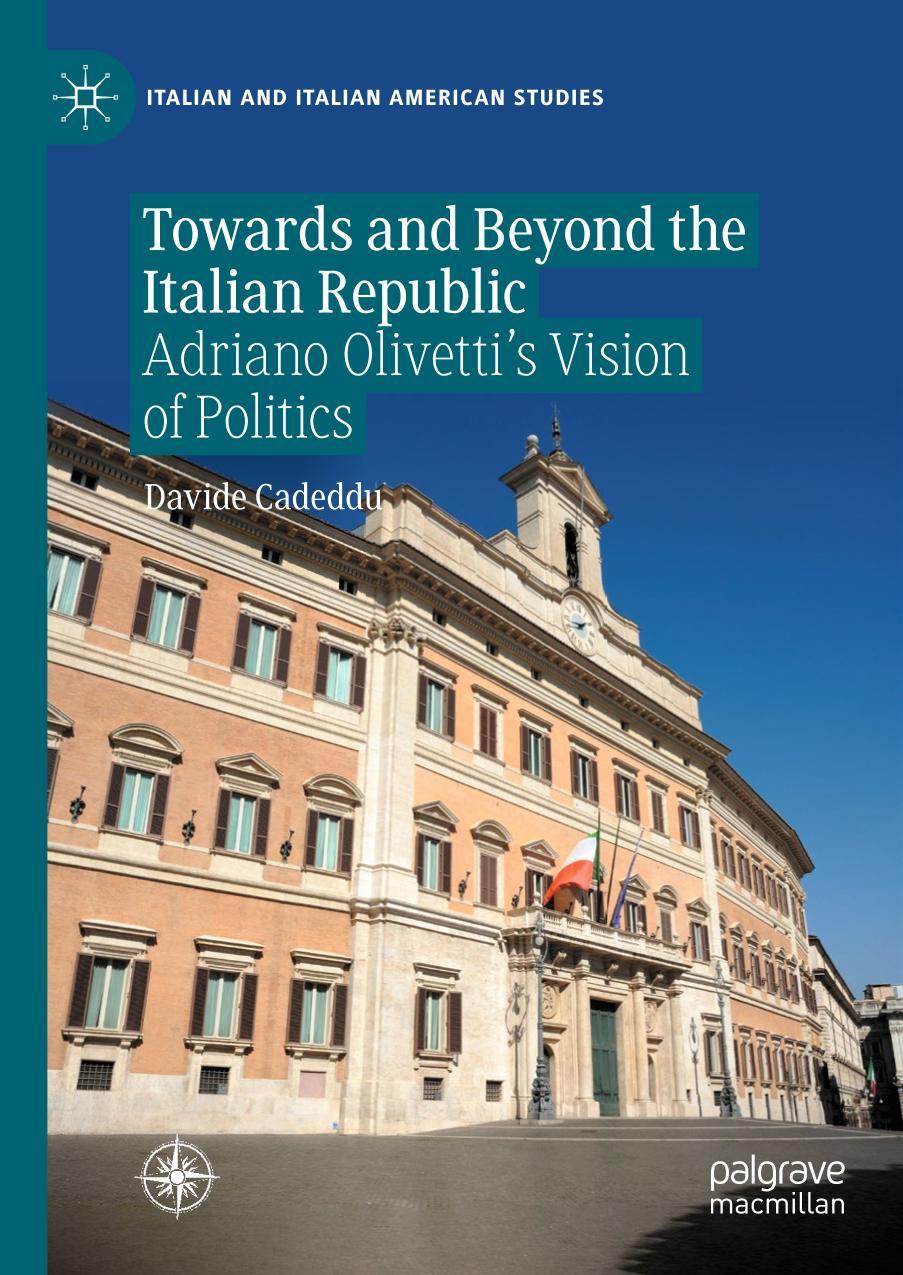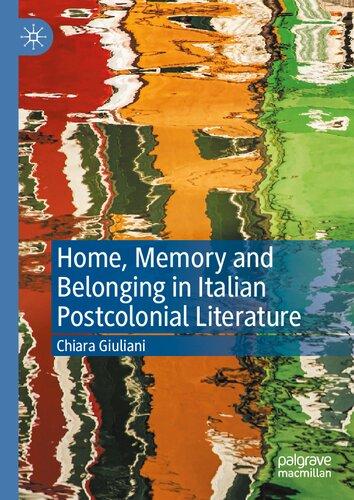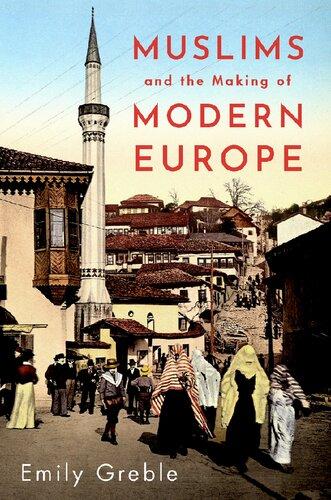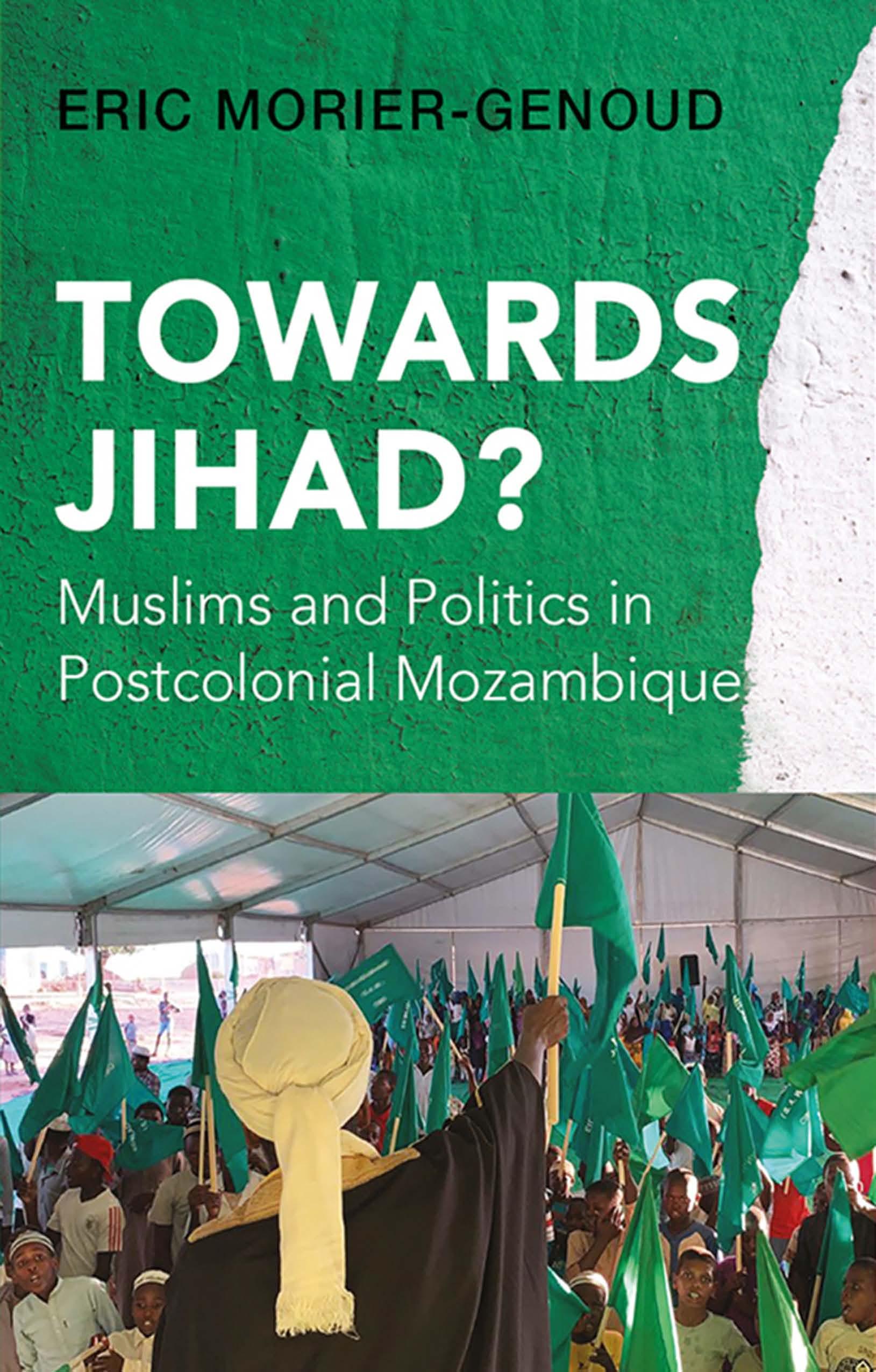1
Oxford University Press is a department of the University of Oxford. It furthers the University’s objective of excellence in research, scholarship, and education by publishing worldwide.
Oxford New York
Auckland Cape Town Dar es Salaam Hong Kong Karachi
Kuala Lumpur Madrid Melbourne Mexico City Nairobi
New Delhi Shanghai Taipei Toronto
With offices in
Argentina Austria Brazil Chile Czech Republic France Greece
Guatemala Hungary Italy Japan Poland Portugal Singapore South Korea Switzerland Thailand Turkey Ukraine Vietnam
Oxford is a registered trade mark of Oxford University Press in the UK and certain other countries.
Published in the United States of America by Oxford University Press
198 Madison Avenue, New York, NY 10016
Copyright © Eric Morier-Genoud, 2023
All rights reserved. No part of this publication may be reproduced, stored in a retrieval system, or transmitted, in any form or by any means, without the prior permission in writing of Oxford University Press, or as expressly permitted by law, by license, or under terms agreed with the appropriate reproduction rights organization. Inquiries concerning reproduction outside the scope of the above should be sent to the Rights Department, Oxford University Press, at the address above.
You must not circulate this work in any other form and you must impose this same condition on any acquirer.
Library of Congress
Cataloging-in-Publication Data is available
ISBN: 9780197769348
Printed in the United Kingdom
List of Figures,Tables, and
1. The ‘Rise’ of Islam after Independence, 1974–94 19
2. The 1996 ‘Muslim Holidays’ Affair 47
3. A Prospect of Secularization? Muslims and Political 69 Power, 1994–2004
4. Growth and Radicalization? Islam and Politics 93 after 2004
5. 2017: The Birth of a Jihadi Insurgency 117 Conclusion 141
Appendices
I. Foundation of the Islamic Council of Mozambique 151 (CISLAMO), 1981
II. Letter from the Muslim World League to President 155 Samora Machel, 1983
III. Law Project for Two Muslim National Holidays, 1996 157
IV. Final Communiqué of the First National Islamic 161 Conference, 2003
V. Transcript of Jihadi Insurgents’ Video Messages, 165 2018, 2020, and 2022
LIST OF FIGURES, TABLES, AND MAPS
Figure 1. Types of Muslim veils
Table 1. Approximate percentage of population by religion, 53 1975 and 1997
Table 2. Approximate percentage of population by religion, 58 1960 and 1975
Table 3. Religious self-identification on a national basis, 97 1997, 2007, and 2017
Table 4. Religious self-identification by province, 99 1997, 2007, 2017
Table 5. Key dates for ISIS in Mozambique 136
Map 1. Map of contemporary Mozambique 17
Map 2. Muslims in Mozambique, 1997 46
Map 3. Presence of the al-Shabaab sect in Mozambique 129 before 2017
ACKNOWLEDGEMENTS
This book was researched and written over many years—since 1999, on and off—and I have accrued numerous debts over that time. In terms of research, I thank the Mozambican National Archives and its director, Joel das Neves Tembe; the archive of the National Directorate of Religious Affairs, of the Ministry of Justice, and its director at the time of my visit, the late Job Chambal; the Library of the Mozambican Parliament; and the Portuguese National Archives in Lisbon, Portugal, whose personnel were most pleasant and helpful. I also thank all those who generously granted me interviews and supported my research in direct and indirect ways (see the list of interviews in the bibliography). A special thanks goes to all those who helped me but need to remain anonymous.
I received financial and other support from several academic institutions: the universities of Basel, Lausanne, and Oxford, and Queen’s University Belfast. In Mozambique, I have been an associate researcher at the Centro de Estudos Africanos and the Centro de Estudos da População of Eduardo Mondlane University, the Instituto de Estudos Sociais e Económicos in Maputo, and the Centro de Investigação e Estudos Económicos e Sociais de Cabo Delgado in Pemba. I have benefitted from being a senior advisor on Raufu Mustapha’s project ‘Muslim Leaders in Northern Nigeria’, which brought me to Nigeria twice, and from taking part in the project led by Benjamin Soares and René Otayek entitled ‘Islam, désengagement de l’état et globalisation en Afrique’. I also received
ACKNOWLEDGEMENTS
financial support from Irish Aid for my last stint of fieldwork in 2019.
I express a warm thank you to my colleagues and friends in Mozambique for their support and encouragement: Yussuf Adam, Sergio Chichava, João Feijó, Salvador Forquilha, Feliciano Mata, David M. Matsinhe, Vali Momade, Borges Nhamire, Estácio Valoi, and Teodoro Waty. I thank my colleagues outside of Mozambique for their advice, friendship, and engagement: Michel Cahen, William Gervase Clarence-Smith, Vincent Foucher, Caroline Jeannerat, Antoine Kernen, Lorenzo Macagno, Martin J. Murray, Didier Péclard, Anne Pitcher, and Alex Vines. In Cabo Delgado, I benefitted from the professional help of Justo Nauva and Abudo Gafuro and many others who have chosen to remain anonymous. My apologies to those I have forgotten or erroneously made anonymous. All mistakes and misunderstandings are my responsibility. Finally, I wish to thank my wife and my son for their understanding, patience, and support while writing the book.
CREDITS
The book contains three chapters that were previously published in English. One chapter is a translation of an article in French. Chapter 4, the introduction, the conclusion, and the appendices are original.
All of the chapters have been edited to avoid repetition and to make minor corrections, and the references and the bibliography have been updated. A section was rewritten in Chapter 5 (about international links and ISIS) and maps were added and updated.
‘L’islam au Mozambique après l’indépendance: Histoire d’une montée en puissance’, in L’Afrique Politique 2002, Paris: Karthala, 2002, pp. 123–46 (as Chapter 1). Copyright: Karthala, 22/23 boulevard Argo, 75013 Paris, France.
‘The 1996 ‘Muslim Holiday’ Affair: Religious Competition and State Mediation in Contemporary Mozambique’, Journal of Southern African Studies, 26(3), September 2000, pp. 409–27 (as Chapter 2). Copyright © The Editorial Board of the Journal of Southern African Studies. Reprinted by permission of Taylor & Francis Ltd, http://www.tandfonline.com on behalf of The Editorial Board of the Journal of Southern African Studies.
‘A Prospect of Secularization? Muslims and Political Power in Mozambique Today’, Journal for Islamic Studies, Cape Town: University of Cape Town, 27, 2007, pp. 233–66 (as Chapter 3).
CREDITS
‘The Jihadi Insurgency in Mozambique: Origins, Nature and Beginning’, Journal of Eastern African Studies, 14(3), 2020, pp. 396–412 (as Chapter 5).
I thank the publishers for their permission to republish the material in the present form.
GLOSSARY
alim Muslim man who is learned in religious matters
bid’ah innovation in religious matter (Islam, usually negative)
burqa veil, of the most concealing type
caliphate polity ruled by a religious leader (a calif) under Islamic rule (sharia)
cofió cap worn by Muslim men
dawah invitation to convert people to Islam (proselytism)
Eid Ul Fitr religious holiday celebrating the end of Ramadan
Eid Ul Adha religious holiday celebrating Ibrahim/Abraham’s willingness to sacrifice his son in obedience to Allah’s command
hafiz a Muslim man who has completely memorized the Quran, is frequently consulted, and is often made an imam
halal permissible by Islamic law
haram forbidden by Islamic law
imam male leader in prayer at a mosque
Islamism political ideology that aims to establish sharia rule
jamaat Shia mosque
jihadism Islamist ideology promoting the use of violence to achieve its objective of establishing sharia rule
GLOSSARY
madrasa Muslim school, often part of a mosque
mawlana title preceding the name of respected Muslim religious leaders, in particular, graduates of religious institutions; man in charge of the mosque (from the Arabic mawlâ, ‘master’)
Mawlid celebration of the birthday of the prophet Muhammad
Ramadan Muslim month of fasting
sharia Islamic law
sheik honorific title, in Arabic, meaning ‘elder’
tariqa/turuq brotherhood/s
ulama community of the learned
umma Muslim community
wilayat province
zakat form of almsgiving—a key obligation in Islam
ABBREVIATIONS
AMA Africa Muslims Agency (Kuwait)
CCM Christian Council of Mozambique (Protestant)
CFI Centre of Islamic Training
CIMO Islamic Community of Mozambique
CISLAMO Islamic Council of Mozambique
DAR Department for Religious Affairs, Ministry of Justice, Mozambique, replaced in the 1990s by DNAR
DNAR National Directorate for Religious Affairs
Frelimo Mozambique Liberation Front
ISCAP ISIS Central Africa Province
ISIS Islamic State of Iraq and Syria
LNG liquefied natural gas
NGO non-governmental organization
OIC Organisation of the Islamic Conference. Since 2011 Organisation of Islamic Cooperation
PIMO Independent Party of Mozambique, commonly known as Islamic Party of Mozambique
Rabitat Muslim World League
Renamo Mozambican National Resistance
SAAR Service of Associative and Religious Affairs, replaced in 1982 by DAR
INTRODUCTION
In 2017, a jihadi insurgency began in the north of Mozambique. It started modestly, with an attack on three police stations in the town of Mocímboa da Praia on 5 October. A handful of men began the attack very early in the morning with knives, machetes, and a few guns. As they progressed, they told residents that they should stay home and that they were only targeting state officials. Crying out ‘Allahu Akbar’, the jihadists killed two policemen and wounded five; they stole several AK-47 guns and proceeded to battle police reinforcements as they came in—for thirty-six hours, before ultimately retreating. In subsequent months, a growing number of attacks took place in the region, first in the countryside, then in small villages, and, finally, in towns. The insurgency grew steadily, taking root and gaining in confidence, so that by the end of 2022 it affected most of Cabo Delgado province as well as the north of the province of Nampula, the east of the province of Niassa, and the areas bordering southern Tanzania. In the first five years of the conflict, the insurgents killed over 4,000 people, according to the Armed Conflict Location and Event Data Project (a number that is doubtless a serious underestimate), and displaced over a million. This is the first jihadi insurrection in Southern Africa.
The armed conflict developed in an area of the country, the far northern province of Cabo Delgado, that is one of the poorest and furthest removed from the capital. Yet it is the province where giant natural gas fields and promising graphite and precious mineral stones
were discovered in the 2000s—not long before the insurgency began. Since then, international companies have moved into the area to develop mines and start work on a mega-project for the production of liquefied natural gas (LNG). This LNG project, which is currently the biggest private investment in Africa, includes an airport, a port, a workers’ camp, and resettlement villages. The insurgency was of concern to investors right from the start, but, reassured by the Mozambican government that it was a minor affair, they continued with their work in the hope that it would not affect them. In March 2021, however, the insurgency scuppered the LNG project when jihadists spectacularly overran the town of Palma, next to the LNG construction site. The attack was methodically planned and affected many expatriates, some of whom were killed. Within weeks, the French company TotalEnergies declared a case of force majeure and suspended all its work. The American company ExxonMobil followed suit and announced it would delay making a final decision on investing in the same area. A much smaller LNG project led by the Italian ENI company has continued, but only because it is located offshore—48.2 km (30 miles) from the coast of Cabo Delgado.
The combination of the jihadi insurgency—which formally linked up to the Islamic State in 2019—mass poverty, major gas reserves and mineral deposits, and Africa’s biggest private investment project has attracted much attention from journalists and academics the world over. The economic, political, and military stakes are high, yet, paradoxically, the insurgency remains poorly understood. This is partly due to the suboptimal conditions for conducting research and practising independent journalism in northern Mozambique; it also has to do with the related fact that scholars and journalists have proposed many, often contradictory explanations for the insurgency, some purely speculative, ranging from poverty, personal grievances, foreign interests, and geopolitics to religious extremism, transnational contagion, local or international conspiracies, and ecology. History is the poor relation of the list, with only two texts applying a historical lens to the question and only a handful of researchers spending any time trying to find out something about the insurgency’s origins and history. We still know little about the insurgents’ background, the historical context from which they
emerged, the political economy of the area they come from, and the history of the state and various other local actors in the area, let alone that of the other actors in the unfolding conflict.
This book is a historical investigation of the relations between Muslims and politics in Mozambique from independence in 1975 to 2022, five years after the jihadi insurgency began. The book discusses the relationship between mosque and state, or the state’s religious policy towards Muslims and how it has developed over time; the dynamics within the Muslim community and its organizations; and the demands that Mozambican Muslims have made of the state and society. While each chapter focuses on a particular period, the overall objective is to understand the relationship between mosque and state, and between Muslims and politics, from Mozambique’s independence up to the present day. The book can be read ‘forward’ as an analysis of Muslims and politics in Mozambique progressing over time, but it can also be read ‘backward’ to understand where the present situation came from and what it builds on. It allows for a deeper appreciation of the contemporary situation by putting it into perspective while hopefully also providing some idea of where things might be going in the near future.
Five themes dominate the coming pages. The first is the state’s policy towards religion. In Mozambique, the same party has been in power since independence: the Mozambique Liberation Front (Frente de Libertação de Moçambique [Frelimo]), though it has changed significantly over the years, from an originally Marxist–Leninist liberation movement to a patrimonial neo-liberal party at the time of writing. Frelimo’s religious policy has changed significantly over the same period too, and this raises several questions: What was Frelimo’s original policy towards religion, how did it deploy it, and with what effect? How did it change over time, when were the turning points, and why was change implemented? Conversely, what are the continuities in Frelimo’s views and policies towards religion, and what effect have they had? The coming pages unpack government policy, its making and remaking, its actors, and the causes of change. The discussion focuses on Islam, but where useful it also considers and discusses other faiths. The analysis thus explores how the Mozambican state has been built since independence, how
it has evolved over nearly half a century, what Frelimo is and wants, and how it has adjusted its objectives over time.
Secularism is the book’s second major theme. The coming pages analyse Frelimo’s policy of secularism and trace how it has changed from a strong (or assertive) secularism at independence to a softer (or more passive) one in later years.1 It also looks at how Muslims have understood and responded to this secularism. Chapter 4 deals with the topic by looking at the integration of Muslims into the political bloc holding hegemonic power. Subsequent chapters return to the issue, if less centrally, to analyse how the Muslim population perceives state policy towards religion and to discuss the changes that took place in the 2000s and 2010s. Considering the extensive discussions by scholars and historical actors over the compatibility of Islam and secularism, particularly in relation to the Muslim concern that laws be made in line with God’s revelation, Mozambique provides an interesting case where Muslims, including Islamists, have engaged actively with secular institutions and have happily compromised with secular politics. Islamists have embraced the state at all levels and worked ceaselessly in the hope of Islamizing institutions and society ‘from above’. As the discussion reveals, their success has been modest: using Christian Coulon’s expression, there has been more of an institutionalization of Islam than an Islamization of state institutions.2
The competition and conflicts between Sufi and anti-Sufi Muslims form the book’s third focus. This topic has been extensively investigated on the African continent but only emerged as a topic of interest regarding Mozambique at the turn of the twenty-first century. Like elsewhere, distinctions in theological doctrine have always existed in Mozambique, but of note is a Wahhabi wave that reached the eastern shores of south-east Africa in the 1960s and initiated a new period within Islam in the territory. Wahhabism settled in Mozambique among a new generation of scholars who had been trained abroad and returned with new ideas; two decades later, a number of Saudi, Kuwaiti, and Sudanese non-governmental organizations (NGOs) made their way to the country and buttressed the power of these scholars with funds, new mosques, and humanitarian and development aid. This wave of Wahhabism
articulated into several social, economic, and generational strands of Islam, to become a major source of tension and conflict among Muslims in subsequent decades.The book analyses how this happened and when, as well as its impact on the internal organization and dynamics of the Muslim community and its associations and political stance. While this subject was a major theme of the scholarship on Islam in Mozambique up to 2017, with significant agreement among authors, it has since been replaced by jihadism as the main subject of concern.
The fourth major theme is the rise of a new Muslim elite and counter-elites. This formation only became possible after the end of colonial rule and its pro-Catholic and anti-Muslim colonial administration. The post-independence regime was initially strongly secularist, even taking an anticlerical position early in its rule. Frelimo had few Muslims among its leadership, and for many years it remained biased against Islam. But in the 1980s and 1990s, new economic, intellectual, and religious elites emerged—both among Sufi and Wahhabi believers—that increasingly engaged the state. This resulted in moments of tension and crisis around the involvement of ‘Islam in politics’, as some journalists put it. Chapter 2 carefully examines one such moment, including allegations of conspiracy. More generally, the book explores the rise of these new elites, be they economic, social, or religious, and Sufi or anti-Sufi, and how they were positioned socially and politically. It also pays attention to minority Muslim groups, not least the revival of old Swahili elites that can trace their status back to precolonial sultanates and sheikdoms.
The book’s last major theme is religious competition and conflict. At one level, it is a discussion about state policy and how this fosters competition between religious institutions and individuals. Academic adepts of rational choice see this in a positive light, arguing that religious competition leads to more religious work, evangelization, and faith. But the deregulation of religious control can also lead to ideological and physical conflict. This is what happened in Mozambique in the 1990s, an example examined in detail in Chapter 2. At another level, the theme of religious competition and conflict is also a discussion about inter-religious and intra-religious relations. Mozambique has been marked by good interfaith relations
since independence, even if tensions grew with the rise of religious competition in the 1990s and 2000s. But the 2000s and 2010s have seen the appearance of exclusivist strands of faith, both Christian and Muslim, with some groups trying to withdraw from society and distance themselves from the state to operate under purely religious rules. This is best exemplified by the rise of the al-Shabaab sect in northern Mozambique in the 2000s. In the mid-2010s, the sect turned to violence to achieve its politico-religious aims in an attempt to change society as a whole. Chapter 5 traces this history.
The title of the book asks whether it is possible to identify a historical path ‘towards jihad’ in the relationship between Muslims and politics in Mozambique. On one level, the question is rhetorical, asking about the connections between postcolonial Muslim politics and the insurgency unfolding in northern Mozambique. The book answers this in the negative to argue that there are no direct connections between the two. Indeed, the insurgency comes not so much from a continuation of Muslim politics in the country as a rupture with it. The jihadi insurgents reject the state, society, and all existing relations that have developed between Muslims and the state since independence. While the answer is negative, the question remains important to think about the historical trajectory of Muslim politics in Mozambique across the period and to explore what connects the past with the present. Indeed, we need to identify the trajectory of Muslims and politics to understand the context within which the armed jihadi insurrection began and unfolded, and to understand what the present situation builds on, breaks with, and argues against.
At a second level, the question in the book’s title is something of a parody, to critique what has become a common methodological problem in understanding the history of Islam in Mozambique. Many contemporary analysts and journalists read history backwards, to find in the past elements that explain the situation unfolding in Cabo Delgado as they write. But reading history backwards limits the view to what one thinks is relevant for the present: it misses the roads not taken and ignores elements that are not clearly and directly related to the present. It also leads to what scientists call ‘teleology’, a linear understanding of history where explanations are designed in terms of the purpose they serve—in this case, to understand the jihadi
insurrection—rather than in terms of the causes from which they arose at the time. A good example of this relates to the link many analysts see between Islamism and jihadism when they assume that Islamism is the step that permitted the development of jihadism in Mozambique even though field research indicates that Islamists and jihadists constitute different social groups with similar ideologies but different social and political projects, drawing from divergent inspirations and networks.
The first three chapters of this volume were written and published before the insurgency began in 2017. They sought to understand the relationship between religion and politics and had nothing to do with a jihadi insurgency, which could not be foreseen. The chapters have not been altered in their focus, analysis, and argument, thus pre-empting any risk of teleology in the analysis offered. The last two chapters, which deal specifically with Muslim ‘radicalization’ and the jihadi insurgency, were obviously penned subsequently. By bringing these older and newer chapters together, this book offers a non-teleological reflection on Muslims and politics in Mozambique since independence as well as a historical consideration of the jihadi insurgency, not only of its origins and history but also its deeper history in Islamic politics in Mozambique. This enables a careful and detailed examination of the complexity of the Mozambican Muslim community, its dynamics, and the ideas that drive it, and an informed archaeological analysis of the situation that saw the emergence of a jihadi insurgency in 2017.
The longue durée
Before discussing the postcolonial history of Muslims and politics in Mozambique, it is important to look at the deeper history of Islam in South East Africa—both in its longue durée (long term) and its conjuncture (medium term), as Fernand Braudel called them.3 This section offers a history of Islam from its arrival on the coast of East Africa up to the end of the colonial period. It explains the structural dynamics that were at play and the impact they had in the period after independence in 1975. Specifically, it sketches the roots of the grievances and tensions that existed after independence, some
remaining right up to the 2020s, such as the idea that Muslims have been and remain marginalized in the national polity. This long history is presented in broad strokes, primarily in relation to politics, and focuses on issues that are relevant to the postcolonial period.
Islam arrived in East Africa in the eighth century, with Arab and Persian travellers and traders migrating to the Benadir Coast of what is today southern Somalia. As August Nimtz has noted, ‘though they were probably not the first Arabs to settle on the East African coast … these were the first immigrants who came to Africa as adherents of Islam’.4 According to the Kilwa Chronicle, two centuries later seven sons of the sultan of Shiraz (in Persia) established themselves in the same area and, after marrying locally, established Afro-Shirazi polities. From these developed a Swahili culture, with its own language (Swahili) and faith (Islam). In the twelfth century, the AfroShirazi began to expand southwards along the African coast all the way to the area that would become Mozambique. They established various settlements and polities, the most important and influential being Mombasa, in today’s Kenya, and the Sultanate of Kilwa, in contemporary southern Tanzania. Smaller sultanates and sheikdoms were established on the coast of the present-day Mozambican provinces of Nampula and Cabo Delgado, namely in Tunge, Quissanga, Pemba, Memba, Angoche, Sangage, and Quitanhonga.5
The arrival of the Portuguese in the sixteenth century along the East African coast, and their establishment on the island of Mozambique and along the Zambezi River, limited the economic opportunities of the Afro-Shirazi Swahili settlements. The expansion of African empires, such as the Zimba and Maravi, challenged these Muslim polities further, leading to a decline of Afro-Shirazi societies in the seventeenth century and to their limitation to the coast.6 A revival took place from the mid-seventeenth century thanks to the arrival of Omani and Hadhrami Arabs from the southern Arabian Peninsula. The Omani defeated the Portuguese in Mombasa in 1698 and went on to control the region. Their influence grew significantly, not least economically, with the trade in ivory and slaves and the involvement of Indian merchants, until Sayyid Saïd bin Sultan al-Busaidi moved his capital from Oman to Zanzibar in the early nineteenth century.7 Religiously, Omani rule saw Hadramaut
Arabs disseminate orthodox Sunni Islam into the interior of what is currently Tanzania and Mozambique (being from the Kharijite sect, the Omani largely abstained from proselytization). Success was such among theYao people, near Lake Nyasa (contemporary Lake Malawi), that several chiefdoms that are part of contemporary Mozambique became sultanates, such as Mataka, Metarica, Makanjila, Mponda, Macemba, Mawinha, Jalasi, and Matipweiri.8
In the mid-nineteenth century, the Portuguese were still limited to the coastal areas of northern Mozambique, where they traded in ivory and slaves. The 1884–5 Berlin Conference changed that dynamic: Portugal was forced to occupy the colonies it had successfully claimed as its own at the conference. For northern Mozambique, this required Portugal to agree on a final border, first with German East Africa to the north and, second, with the Sultanate of Zanzibar, which had a presence in the territories Portugal claimed. A Luso-German treaty resolved relations with Germany in December 1886. As to Zanzibar, in February 1897 Portugal issued an ultimatum and, when this was not respected, waged a war against it. Three battles ensured a Portuguese victory and its full control of the territory up to Rovuma River, including the originally contested Quionga triangle at the mouth of the river.9 While this ended formal Zanzibari influence over the area, trade and religious links continued. After Lisbon outsourced the northern parts of its colony to the private Nyassa Chartered Company,10 things changed in matters of policy and trade but not in relation to faith. As Eduardo da Conceição Medeiros notes: ‘The Chartered company does not seem to have been preoccupied by the Muslim question.’11
When the Nyassa Chartered Company came to an end in 1929, the Portuguese administration took direct control of northern Mozambique. It reorganized the territory and worked at incorporating chiefs into the state administration. Chiefly, responsibilities were expanded from taxation to justice, labour recruitment, and forced cultivation, for which they received salaries and uniforms.12 One substantial difference between the Portuguese and the administration of the chartered company beforehand was the stance they took towards religion. From the 1920s, the Portuguese state began to work ever more closely with the Roman Catholic Church. After
signing a concordat and a missionary accord with the Vatican in 1940, the Portuguese state outsourced the education and health of Africans to the church, to which it also granted land, salaries, and other benefits for its work.13 The Portuguese state also opposed, if not repressed, Islam and other non-Catholic Christian denominations.14 This opposition did not, however, prevent the expansion of the Islamic faith. Benefitting from colonial stability and the development of new infrastructure, a network of Sufi evangelists expanded its reach under the colonial state’s radar.15 African involvement was key to the success of Sufism as well as the involvement of a former local Muslim aristocracy that reinvented itself, as Liazzat Bonate explains, by transposing its ‘precolonial political networks of kinship and territory on to the tariqa [brotherhood] networks’.16
The Portuguese attitude to Islam began to change in the late 1950s when Portugal became concerned by the rise of African nationalism and the possibility of a liberation war. The administration loosened its relations with the Catholic Church and began to co-opt non-Catholic leaders in the hope of preventing them from siding with the cause of national independence. Several important sheiks were approached and given support, including some leaders of Sufi turuq. The state also gave financial support for Muslims to undergo the hajj pilgrimage to Mecca and even for the construction and renovation of mosques. But the colonial state also used force during the liberation war by arresting many Muslim leaders, not least in Cabo Delgado, where dozens of sheiks and mwalimu (Muslim school teachers) were imprisoned and tortured, some deported to São Tomé, and others killed.17 This stick-and-carrot strategy might have been successful in neutralizing nationalist support from the Muslim population as a whole, but it did not make Muslims change their view that the colonial state was pro-Catholic and that Muslims were being discriminated against—a view that predominated at the time of independence.
Approaching postcolonial Islam, Islamism, and jihadism
The historiography on Islam in postcolonial Mozambique is very young. Until the 1990s, hardly any scholars researched and wrote
about Islam in the country, and none focused on postcolonial Islam. Since then, a handful of authors have focused on two aspects in particular: the relationship between Islam and the state, and the conflict between Wahhabi and Sufi Muslims. Regarding the former, the issue is mostly about the repression of religion that the newly independent Marxist–Leninist regime implemented after 1975 and the subsequent decision to move away from this policy in the early 1980s towards a new regime of division and control.18 As to the latter aspect, researchers have focused on the rise of Wahhabism since the 1960s, its competition and struggle with Sufism, and the consequent changes in Muslim religious leadership.19 Some of the coming chapters were early contributions to this historiography.
The literature on the insurgency that emerged in 2017 is even younger. Most authors have been concerned with identifying the insurgency’s causes and look in particular at poverty, marginalization, governance, and radicalization. Others debate the importance of Islam and jihadi ideals, with some arguing that these are but a ‘veil’ to hide material interests.20 Among the authors who have carried out original research, the dominant view is that there are several causes of the conflict, one of which is religion, specifically Islam.21 While many have explored issues of poverty, governance, and radicalization, hardly anyone has looked at the history of the insurgents. Only one article has done so aside from Chapter 5 in the present book, which is a revised version of an article published in 2020.22 Much more work is needed to answer questions about the insurgency’s leaders, their origins, and their motivations. What also still needs to be studied is the insurgents’ ideology and discourse and the history of the Muslim community in the Cabo Delgado province (since this is where the insurgency began). Chapter 5 contributes to the history of the jihadi insurgency; Chapter 4 makes a new contribution to the issue of radicalization, which is often presumed to have taken place before the insurgency (if not as a cause of it), although no one has studied the phenomenon.
Most studies on Islam in Mozambique have focused on institutional Islam, that is, its organizations and officials. Only recently have some started to look at mosques and individuals that are independent of the main national institutions recognized by the state.23 This
institutional bias has led all authors—including the present one—to miss some important social, religious, and political developments, most notably the birth and rise of the Islamist sect at the origin of the jihadi insurgency in Cabo Delgado. As I note in Chapter 5, there is a need in the historiography not only to study Muslims outside of the associations recognized by the state, but also to do research specifically on Islamic sects (understood in the sociological sense of communities separate from institutional Islam and distant from society and the state). Such investigations are challenging, as it means relying less on archives (which tend to contain material on recognized faiths, leaders, and institutions) and engaging in oral and life histories, something that might now be more difficult than ever, given the state’s anxiety about such research in view of the jihadi insurgency.
The approach deployed in this book is historical and sociological: it aims to identify changes and continuities in the history of the relations between Muslims and politics. I am an adept of what some call an ‘opportunity structure’ perspective, namely a historical approach that neither sees people as making their own history as free agents, guided purely by their free choice, nor as people acting mechanically under the constraints of predetermined (super)structures.24 Rather, the ‘opportunity structure’ perspective maintains that people act within structures that shape and constrain their actions and thinking, but that, at the same time, these structures are not free-floating elements but are made and constantly remade by the actions (or non-actions) of actors of different weight and power. Key to this approach is an examination of choices made within constraining structures, an analysis of the evolution of these structures under the impact of individual and collective action, and a study of the resulting historical trajectory.
My approach also builds on the rich tradition of the sociology of religion. This sub-discipline is important not just to add to and complement history, to give a subject some ‘thickness’ as Clifford Geertz would say, or to provide additional conceptual tools. It is key also for methods that teach how to deconstruct and critically assess faith and religious institutions, away from theology. One of the dangers for researchers and authors is to reproduce the discourse
of the agent-actors and to misunderstand it. A good example is the term ‘sect’, which is used among Muslims, theologians, and believers alike to describe the two main currents of Islam: Sunni and Shia (and sometimes the different legal schools). In sociology, however, the term refers to a specific form of religious group that is located within a ‘church–sect’ typology. The typology defines models (or ideal types) on a spectrum of institutionalization and degree of closeness to society and the state. A sect stands at one end of the spectrum, with a low degree of institutionalization, a high degree of protest, and maximum distance from state and society. A church, in turn, stands at the other end of the spectrum, highly institutionalized and close to the state and society.25 This book draws on this sociological understanding, particularly in Chapter 5, in preference to theological categories.
If researchers need to deconstruct the discourse of actors, they should also situate themselves. I am not religious and do not have an Islamic background. I do not speak Arabic or Swahili—as far as I know, only one such scholar exists in the study of Islam and Muslims in Mozambique. But I have been doing research in Mozambique since 1994, and I have worked on Islam since 1998. In 2007, I decided to stop doing research on Muslims because I felt that I would need to learn Arabic and Swahili and invest more in the study of Islam and the Quran if I wanted to continue. I thus shifted to other issues and topics, including politics and armed conflict. But I came back to the subject of Islam and Muslims in Mozambique in 2017 when the jihadi insurgency began. For one, I became interested in the subject; for another, I saw so much basic misunderstanding and ignorance of Islam and its history in Mozambique (on the part of commentators, journalists, politicians, and citizens) that I felt I should use my knowledge to make a contribution.26 Looking at the insurgency, I felt that there was not just a lack of historical knowledge but also a lack of clarity about what questions needed to be asked to find out who the insurgents were and what they wanted. I thus came back to the subject with the same limitations as before but also with the advantage of a decade of prior research.
Shifting to a more general point, it is worth discussing the methodological question of whether Muslims constitute an actor in
